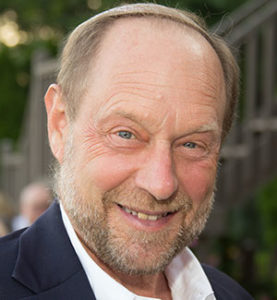Posted on September 9, 2022 by Rabbi Arnie Gluck

This week’s parashah, Ki Teitzei, tells parents what to do if they have a stubborn and rebellious child:
If a man has a wayward and defiant son, who does not heed his father or mother and does not obey them even after they discipline him, his father and mother shall take hold of him and bring him to the elders of his town…and say…“This son of ours is wayward and defiant; he does not heed us. He is a glutton and a drunkard. All the people of his town shall stone him to death. Thus, you will root out the evil from your midst…” (Deuteronomy 21:18–21)
If you find this text shocking, you are in good company. Our rabbis found it so disturbing that they took pains to nullify it by offering a list of circumstances that would exonerate the rebellious son:
and so on… the law does not apply.
In short, what began as an inquest into the behavior of the child becomes an examination of the parents.
A child has gone woefully astray, and the rabbis are telling the parents to question themselves? It may be a very Jewish thing to blame ourselves for the shortcomings of our children, but it strikes me in stark contrast to the spirit of our time.
Nowadays, it is increasingly common to blame others for our failings — including children who accuse their parents and even sue them for ruining their lives.
It’s hard enough to find people who take responsibility for their own mistakes, and here the rabbis are suggesting that we should take responsibility for the misdeeds of others?
There is a long Jewish tradition of such self-scrutiny. The Talmud says that when troubles come upon us, we should examine our deeds to determine if we are somehow responsible for our woes.
The traditional machzor for the Holy Days contains the phrase: Mipnei chata’einu gilinu mei artzeinu, “On account of our sins we were exiled from our land.”
On account of our sins? What about the sins of the Romans? Weren’t we the victims of their aggression? Isn’t it masochism to suggest that we ourselves were responsible for the destruction of Jerusalem and the Holy Temple?
And yet, there is something liberating about refusing to see ourselves as victims. By shifting the focus from “What they did to us” to “How might we have erred?” we empower ourselves to grow and improve. We go from being hapless victims of fate to becoming shapers of our destiny.
This month of Elul leading up to Rosh Hashanah is a time for cheshbon nefesh, for such self-examination. It is a time for honest reflection on the ways we have failed to live up to our values so we can change for the better.
The Talmud’s conclusion about the wayward and defiant son is that there never was such a person, and there never will be. Is this wishful thinking or denial? I don’t think so.
This is the Talmud’s way of saying that no one in our community should ever be allowed fall so low, and if — God forbid! — such a thing were to happen, we all would share responsibility. For we are each other’s keepers. We exist in a complex network of interdependence that requires each of us to do our part as individuals and for the community. To paraphrase the Talmud, “We are all responsible for one another.”
There is a Sufi parable about a man who sees all the corruption, evil, and suffering in the world and cries out, “Great God, how is it that a loving creator can see such things and yet do nothing about them?” And out of the long silence came the word of God: “I did do something. I made you.”
The Book of Life is open before us, and each of us will write the next chapter in our story. May it be filled with blessing for ourselves, our families, the whole House of Israel, and all who dwell on earth.
Shabbat Shalom,

Rabbi Arnie Gluck